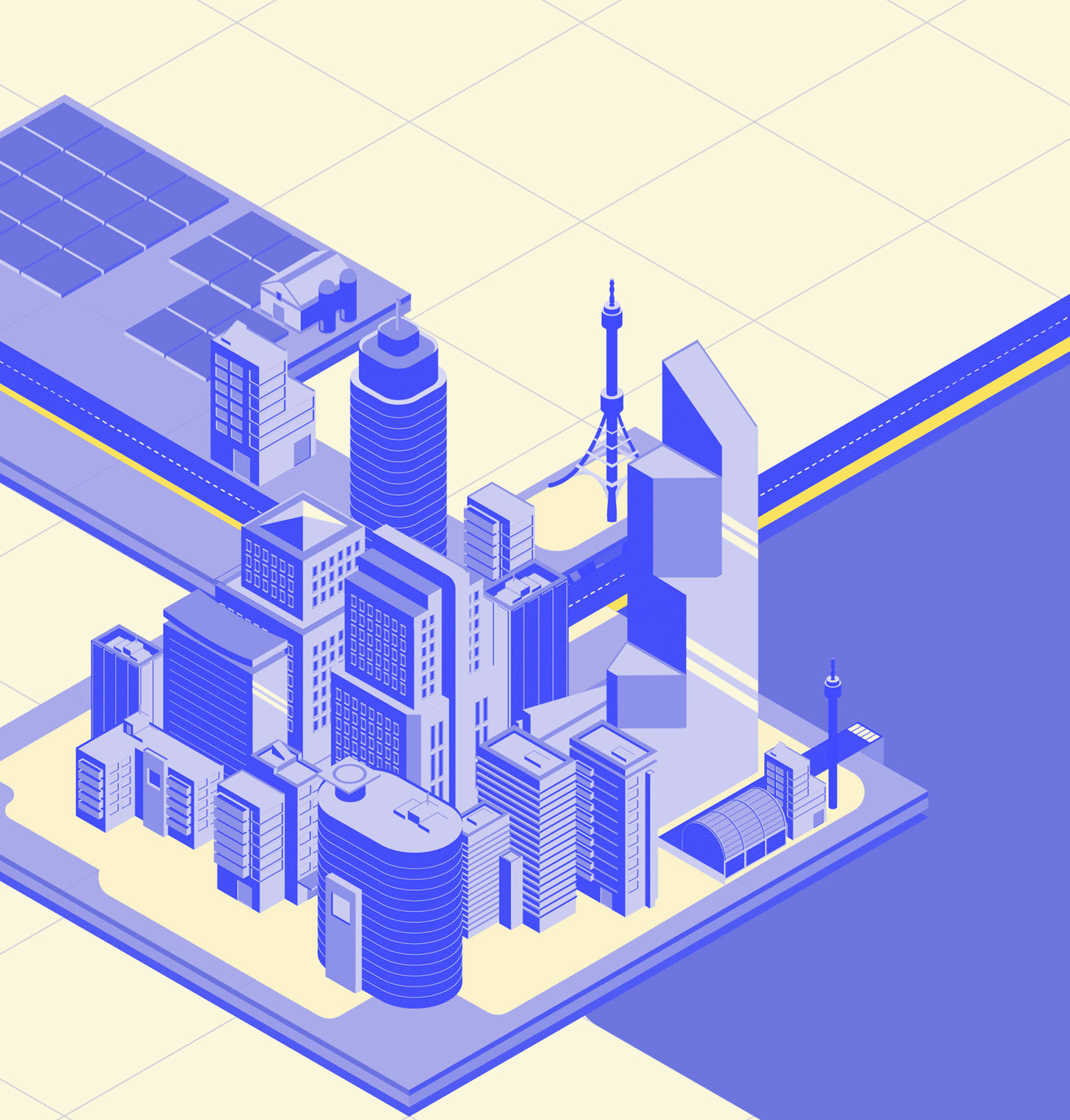
city & country-side merges
more complex relationships
an emergent desire of life debureaucratization
trust distributed in network systems
ficticious money
Plastic
the
era
04.

In 1971, Richard Nixon declares the end of the metal ballasts inaugurating the economic hegemony of the dollar. By the end of the century, there were nearly two hundred national currencies, but the most dramatic shift of the age has been the widespread of fictitious money.
Credit
a new era for
As systems of trust evolve, a network of lenders begins to develop. They provide resources to borrowers with interest.
Banks
consolidation of
By connecting lenders with borrowers, banks create new markets and establish themselves as predominant economic intermediaries
Fiat money
standard
Paper, coins and cheques - items without intrinsic value - emerge as symbolic
standards for global trade
exchange of
Stocks & bonds
by allowing investment in equity stakes of governments and incorporated business, stocks and bonds accelerate the capitalization of centrally organized institutions
from the ubiquitous U.S. dollar to local currencies, with no circulation outside the area controlled by their own national governments.
The currency market differs from all others in an even more fundamental way.
It is now powered by the Third Industrial Revolution.

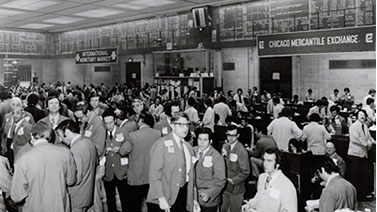
On May 16, 1972, the Chicago “money pit” opened as the first currency futures market. With the help of computers and satellites, money moved around the world at an accelerated speed, its Promethean energy finally and fully unbound.
IMM opening day



-
+
the third
industrial revolution
The third industrial revolution or digital revolution which came in the 1980th brought computerisation, i.e. mainframe computers, personal computers, internet, and the information and communication technology (ICT) available today.
In other markets, merchants exchange goods for money; but in the currency market, traders exchange the money of one country for the money of another, with no other goods involved in the transaction.
They do not need to discuss metric versus American measurements, preferred voltage, or shipping lines; they need only haggle about the asking price.
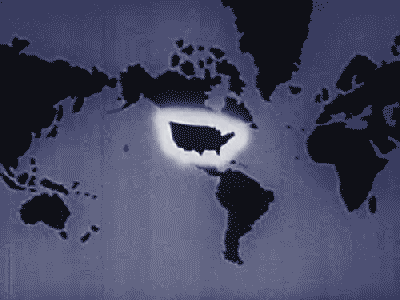

Without the need to plant
and harvest crops, or to manufacture and ship goods, the currency market suffers
no delays; transactions are instantaneous and electronic, the purest exchange of all.
$3 trillion dollars
The largest market in the world, the currency exchange has a daily turnover of more than
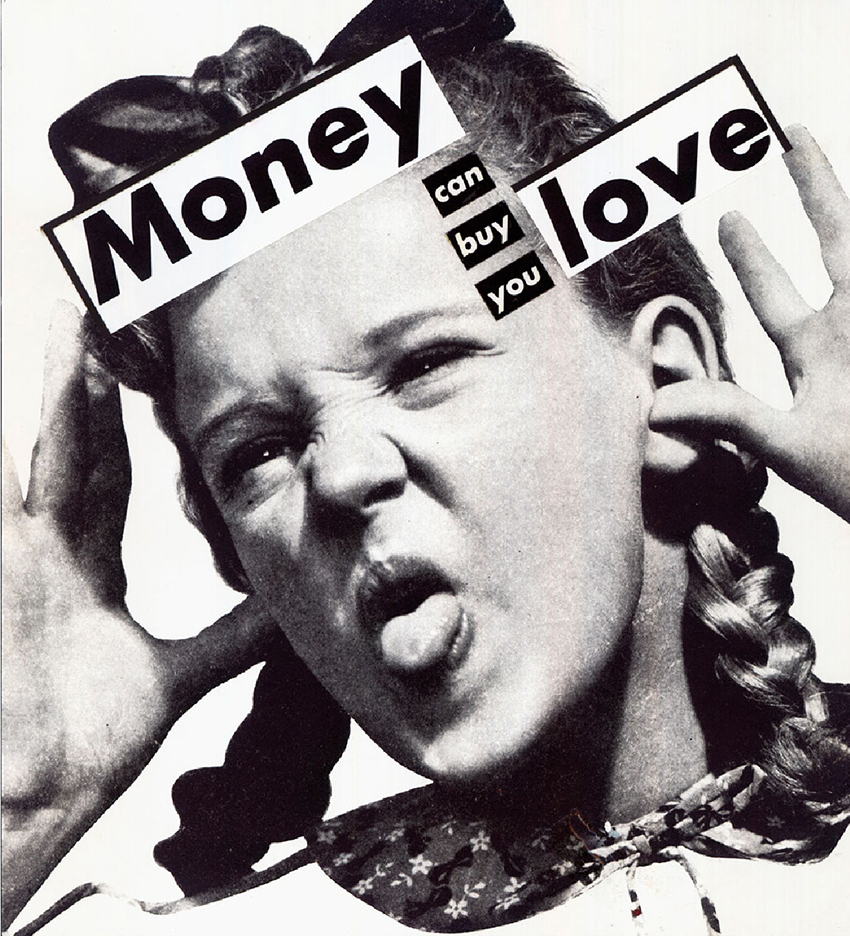
By allowing investment in equity stakes of governments and incorporated business, stocks and bonds accelerate the capitalization of centrally organized institutions.
Access to credit allows nations, trade routes and companies to grow while concentrating power. In great symbiosis, banks and governments
power the global economy
to unforeseen prosperity.
Atop of extraordinary wealth, centralized institutions
become the de facto standards for governance.
Barbara Kruger, Untitled (Money can buy you love), 1985.
Collage. Courtesy of Sprüth Magers, Berlin and London.


The rise of internet
The globalization
of money and trade culminates with the use
of internet, by creating
a financial network of unprecedented scale, complexity and richness.

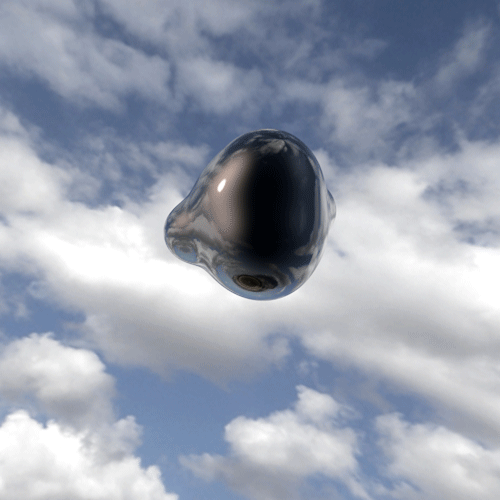
This
changes
everything.
Future of
payment
methods
Envisioning.io



